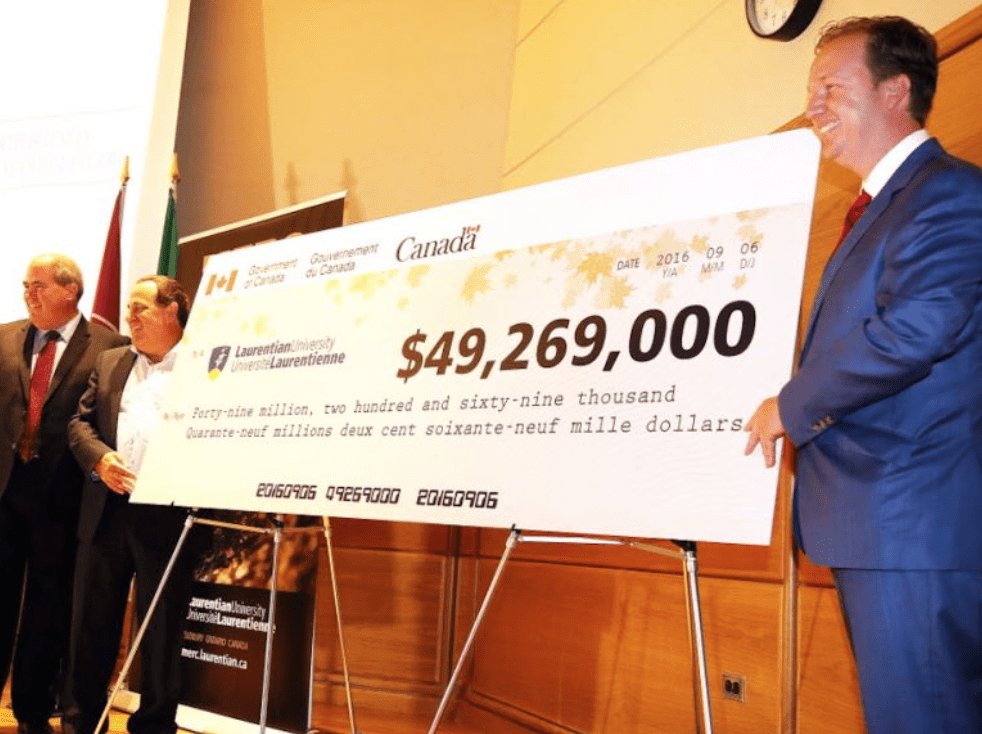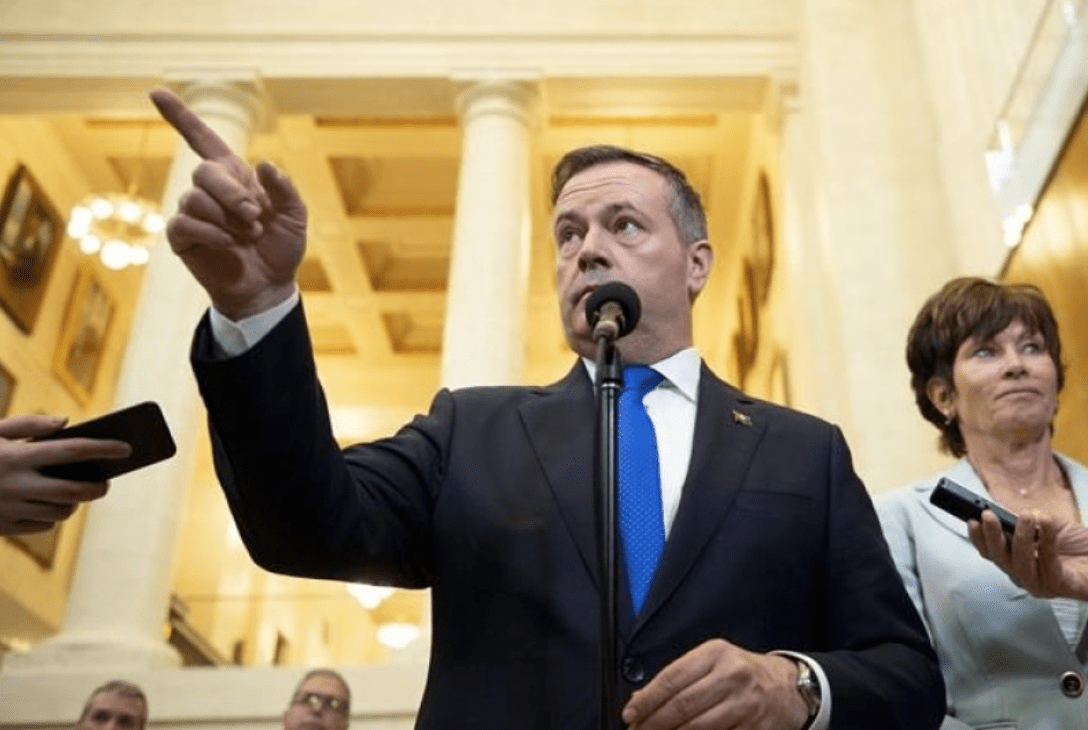When the Liberals first came to power, it seemed for a time that they were finally starting to restore some of the norms of a parliamentary democracy in very many ways, be it with respecting the House of Commons enough to make major announcements there most especially things like the fall economic update and toning down on some of the more abusive uses of parliamentary tools like time allocation or their management of the parliamentary calendar. And one of those norms that largely went under the radar was the insistence that spending announcements were made by ministers, or occasionally parliamentary secretaries but of note was that they weren't being made by local MPs, after the Conservatives were notorious for having their MPs present oversized cheques in photo-ops. The closer we get to the next election, that norm is again being sacrificed on the altar of political expedience.
This particular norm became the subject of an online debate over the weekend, when journalists David Akin wondered why a minister was heading out to a local announcement when the local MP could do it just as well. Unsaid was the fact that this was one of the rare announcements in recent weeks where there actually was a minister present. As the press releases go out fast and furious, now that Parliament has risen and we inch toward the fixed election date, the bulk of these announcements follow the pattern that such-and-such local MP, "on behalf of" the minister of whatever, is making a spending announcement in that riding. And I cannot stress enough how completely wrong this is under our system of government.
Our system is built upon the notion that MPs are there to hold the government meaning Cabinet to account, and they do so by controlling the public purse. That's why money bills are automatically confidence measures, and why the Business of Supply which gives opposition parties the opportunity to withdraw confidence in the government is tied to Supply, meaning the allocation of funding that the government hopes to draw upon to carry out its agenda. There is a fundamental gulf between MPs holding the government to account for their spending, and being asked to announce spending on behalf of government. It is a fundamental corruption of the role of an MP, and makes them complicit in the actions of the government rather than keeping them in the position where they can hold the government to account for that spending.
Early on in our democracy, from the days of Responsible Government first being achieved in the colonies, right up until the 1930s, there was an enforced separation between Cabinet and MPs so much so that when someone was named to Cabinet, they were forced to resign their seat and run in a by-election so that the people of their riding could confirm whether they wanted their MP to essentially switch sides, so that they were no longer playing the watchdog role, but were now on the side of spending their tax dollars. Partly why this system came to an end is the way in which it was abused by governments in power when the seat counts were close think of the "Double-Shuffle Affair" in 1858, and in Arthur Meighan's attempt to name "acting" ministers to avoid triggering by-elections in the wake of the King-Byng Affair in 1926. Mind you, this was also in the days before the creation of the welfare state, and government was much smaller and treated with far more suspicion than it is these days, but the principle nevertheless remains that the role of a minister and that of an MP are fundamentally at odds with one another.
When I pointed out that Akin was mistaken in his understanding of the roles of an MP when it came to announcing funding, I was inundated with a number of people who insisted that it was an MP's job to fight for their constituents, and to advocate for them to get funding, so there shouldn't be anything wrong with them announcing funding and this is a fundamental misunderstanding of the divide between minister and MP. An MP can and should advocate for their riding, as that fits in with accountability they need to ensure that the government is addressing their riding's needs, and that their spending plans aren't putting them at a disadvantage. But they have to do so at a distance, because if they are seen as decision-makers when it comes to that funding, if anything is wrong with it and let's face it, that happens an awful lot under any government they need to be able to hold someone to account. When MPs get co-opted into those spending decisions, their ability to hold government to account falls to pieces because the government can simply say "you helped make that decision. You got to announce it. You should wear it, not us."
This isn't to say that an MP shouldn't be present at these announcements it should be an expectation, so that they can point to their advocacy, and this goes for MPs of all parties. But advocacy is not decision-making, which is part of announcing. As much as it's churlish to not invite an MP from an opposition party to an announcement (which, the Liberals were better about than the Conservatives), it's fundamentally dishonest to portray the local MP from the governing party as the one who made the decision on that spending.
Inherent in this discussion is the fact that our lack of civic literacy has ensured that we no longer understand the fundamental role of an MP accountability and have instead imprinted on it a desire to see them "bring home the bacon" to their riding, which is what announcements like these accomplish. That also feeds the mythologies that an MP is only useful if they're a member of the governing party (which electoral reform advocates promulgate), and despite the early avoidance of this temptation, the Liberals have succumbed to the electioneering tactic of showcasing their MPs as distributing largesse particularly as we are now in the pre-writ period. It's a fundamental corruption of our system that too many people are keen to applaud, to all of our detriments.
Photo Credit: National Post








